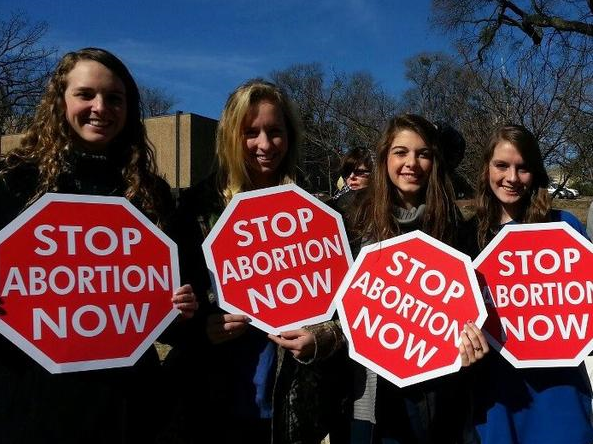A New York college rejected two students’ request to establish a conservative club on campus this fall, arguing its focus on intellectual discussions about abortion and other issues could “cause stress for the student body.”
The decision comes as pro-life students face increasing animosity on college campuses across the world. Some campuses have banned pro-life and conservative clubs from forming, while many already established clubs have been targets of vandalism.
The College Fix reports students Hannah Sailer and Jenny Yuodsnukis recently requested permission from Hobart and William Smith Colleges in Geneva, New York to form an Intercollegiate Studies Institute chapter.
The Intercollegiate Studies Institute is an organization that encourages students to engage in intellectual conservative thought through reading, discussions, special guest speakers and other formats.
In October, Sailer and Yuodsnukis made their request in front of the joint student government, according to the report. The students said their peers “barraged” them with “antagonistic questions” for half an hour and then denied their request to form the club, the report states.
“They asked ‘How can you make sure that [your club] is not going to promote racist rhetoric around campus?’ and ‘Would you be interested, if your club was approved, in doing diversity and inclusion courses to make sure [your club] is knowledgeable about diversity and inclusion,’” Sailer said.
She said they also asked questions about abortion, immigration and other hot-button issues.
The student government claimed the club could “cause stress to the student body,” according to the report.
Keep up with the latest pro-life news and information on Twitter. Follow @LifeNewsHQ
Here’s more:
Hobart Student Government Secretary Andrew Guedea said in response “they were denied club status by a vote of other students. The executive boards of the governments do not vote in club status proposals, so this was a vote from their peers.”
Guedea also stated Sailer and Yuodsnukis condemned ISI’s stances on social issues and “everything about the organization but the literature,” and that they “had emphasized the club was essentially a book club for conservative ideas.”
“Ultimately, the two students were denied club status for ISI. We’d also like to note while different, we currently do have a chapter of Young Americans for Freedom and the two presenting students were the former club leaders of YAF,” he said.
Yuodsnukis described the decision as “disheartening” but promised not to give up their pursuit of educating their fellow students on conservative thought.
These types of experiences are increasingly common for conservative and pro-life students. Earlier this fall, The Independent reported how pro-life campus clubs in the United Kingdom are facing increasing threats of “milkshaking” and other hostilities. And in the spring, Students for Life of America reported more than 50 pro-life student displays had been vandalized during the 2018-2019 school year.








